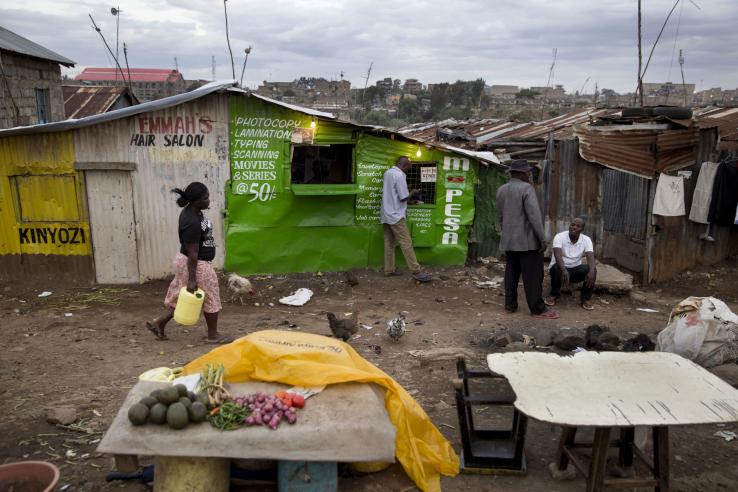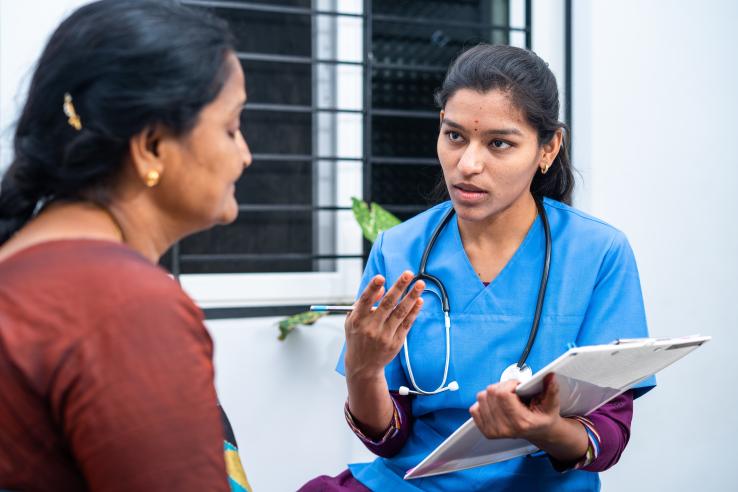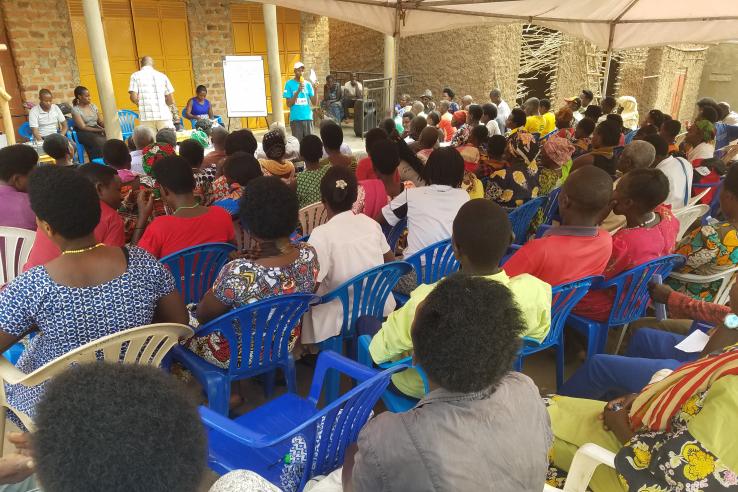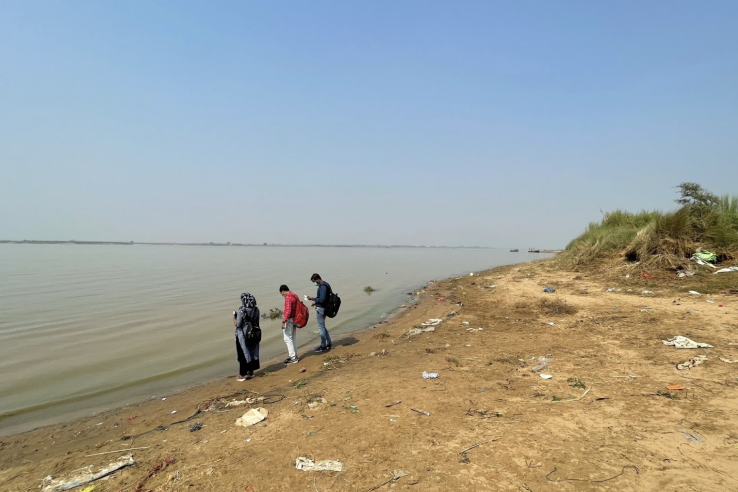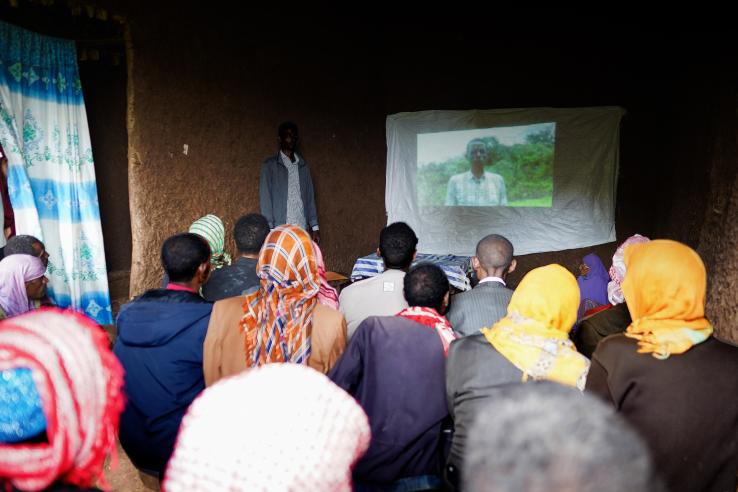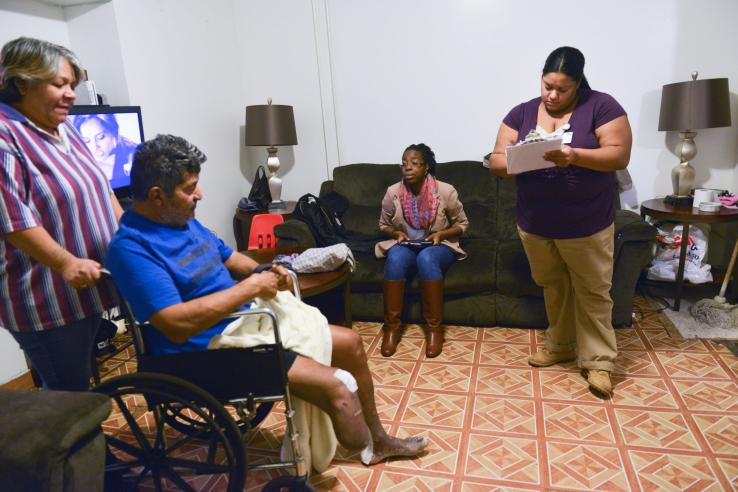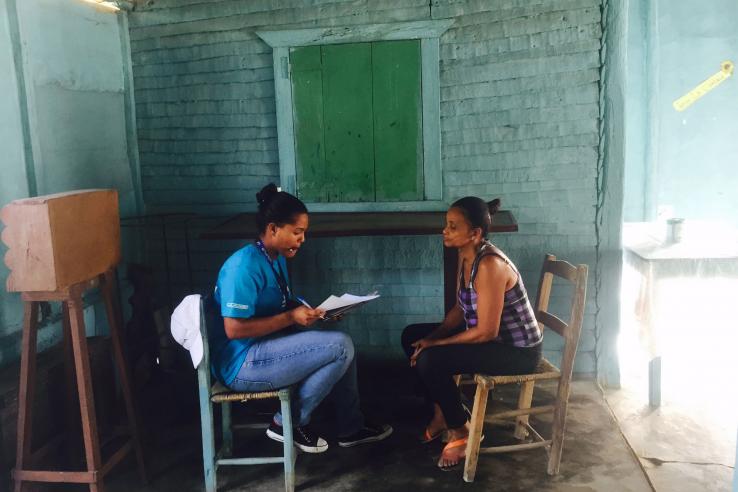Displaying 4366 - 4380 of 8489
Evaluation
Researchers are evaluating the impact of an innovative mobile phone-based digital finance program on loan repayment rates, investment decisions, savings, and use of other financial services, as well as agricultural yields and profits.
Evaluation
In Uganda, researchers working with USAID are conducting a randomized evaluation to better understand the effectiveness of several variants of a graduation program focused on improving nutrition and self-reliance among populations in and around a refugee settlement.
Evaluation
In Ghana, researchers evaluated the impact of providing vendors and consumers with information on official mobile money charges and options for recourse for consumers to report being overcharged. The program led to a decrease in misconduct, which in turn facilitated an increase in market activity, firm sales revenue, and consumer welfare.
Evaluation
In Kenya, researchers conducted a randomized evaluation to test the impact of a light-touch positive psychology intervention on psychological well-being and economic decision-making for low-income populations. The intervention had a positive impact on gratitude; however, it had no significant impacts on psychological well-being or decision-making.
Evaluation
Researchers evaluated the impact of providing depression treatment and economic assistance on mental health and economic behavior in peri-urban communities near Bangalore, India. Treatment reduced depression severity, a benefit that persisted when paired with light-touch livelihoods assistance, but did not increase productivity, work time, or earnings.
Evaluation
The researcher conducted a pilot randomized evaluation to test the feasibility of a regular community accountability meeting program and a politician health leadership program, as well as the feasibility of associated data collection activities. Both interventions realized considerable stakeholder participation and engagement, providing a foundation on which to conduct a larger randomized evaluation in the future around the impact of these interventions on health service delivery and health outcomes.
Evaluation
Researchers conducted a randomized evaluation to test the impact of different types of labels to signal product quality on sellers’ ability to develop a reputation for consistently selling high-quality watermelons in China. The more expensive laser-cut label influenced sellers to provide higher quality watermelons than the sticker label. The use of the laser-cut label also led to higher sales profits, whereas the cheaper sticker label had no effect on profits.
Evaluation
Researchers are conducting a randomized evaluation to test the impact of providing flood early warnings to rural households through smartphone alerts and community volunteers on their flood preparedness and responsiveness, as well as post-flood health and economic outcomes.
Evaluation
Researchers conducted a randomized evaluation to test the impact of a video-mediated extension approach on the uptake of technologies recommended by the Ethiopian Ministry of Agriculture. The video-mediated instruction increased uptake through improved access to extension and farmer knowledge but did not improve crop yields. Targeting spouses in addition to heads of households with the video approach increased spouses access to extension services and knowledge of the recommended technologies but it did not further increase technology adoption.
Evaluation
Building off of previous quasi-experimental research, researchers conducted three randomized evaluations to test the impact of providing farmers with land tax subsidies, different ways of monitoring water access and the canal’s operations and maintenance, or farming minikits on farmers' use of irrigation on their cultivated land. Researchers found that none of the interventions affected farmers’ choices to adopt irrigation, suggesting that there were more binding factors that constrained farmers’ decision-making.
Evaluation
Re searchers used a randomized evaluation to measure the impact of providing mobile calling credits to low-income adults on well-being outcomes in Ghana. Overall, the mobile credit intervention increased the ability for individuals to meet unexpected communication needs, particularly when delivered in installments, leading to meaningful improvements in mental health and modest decreases to domestic violence.
Evaluation
Rapidly rising health care costs in the United States have generated interest in identifying effective ways to improve the quality of care delivery and reduce waste within the health care system. In this study, researchers evaluated the impact of a care management program that provides medical and social assistance to individuals with complex needs who incur high health care costs.
Evaluation
In Ghana, researchers evaluated the impact of performance pay on worker productivity. They found that neither individual nor group incentives impacted productivity, work quality, or firm profitability.


